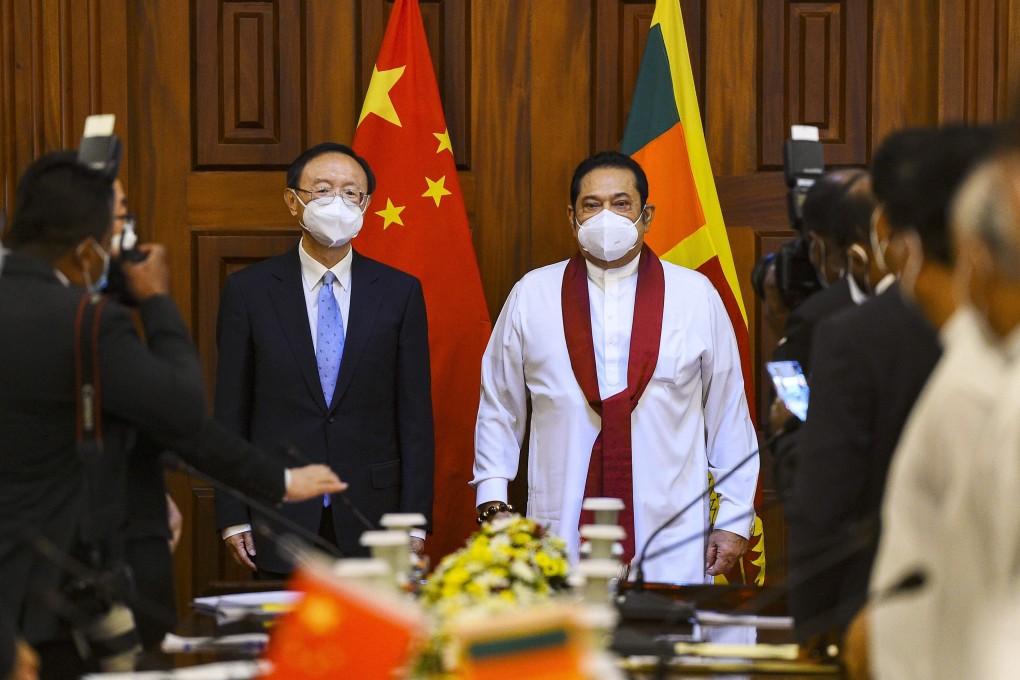Advertisement
Sri Lanka port deal not a ‘debt trap’ set up by China, President Rajapaksa says
- Rajapaksa said Beijing and Colombo plan to restart talks on a free-trade agreement following a high-level meeting between the two countries
- He also rejected accusations that China wanted to trap Sri Lanka into mounting debt with the port deal
Reading Time:1 minute
Why you can trust SCMP

China and Sri Lanka plan to restart discussions on a free-trade agreement, Sri Lankan President Gotabaya Rajapaksa said on Friday, following a high-level meeting between the two countries.
Seen as close to Beijing, Rajapaksa has appointed several members of his family to top cabinet positions since his party won a commanding majority in August’s parliamentary elections – including his brother Mahinda, who previously also served as president.
Negotiations on a free-trade agreement were last held in 2017.
Advertisement
China has been making increasing inroads into South Asia with its Belt and Road Initiative, aimed at financing critical infrastructure in dozens of countries across the world.

02:35
Belt and Road Initiative explained
Belt and Road Initiative explained
In 2017, Sri Lanka signed over control of a Chinese-financed port and land around it to Beijing after incurring heavy losses, to the alarm of the United States and regional power India.
Advertisement
Advertisement
Select Voice
Choose your listening speed
Get through articles 2x faster
1.25x
250 WPM
Slow
Average
Fast
1.25x